20 Ways to Get Your Kids to Speak Chinese
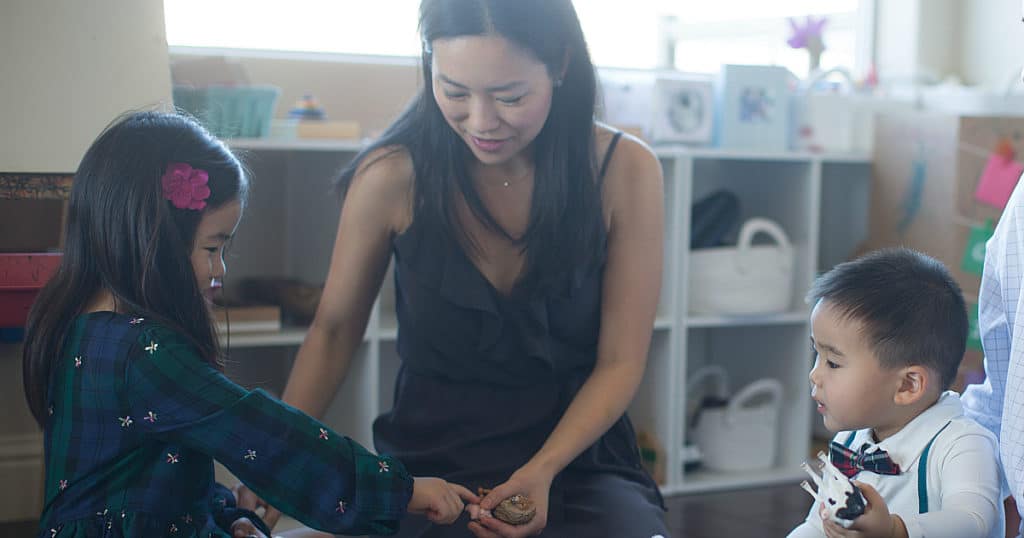
Have you said this before? “I started talking to my kids in Chinese…but they only reply in English.” I’ve been there, too. The struggle is real: getting kids to speak Chinese can be a huge challenge when it’s the minority language at home. So, how do you teach kids to talk in Chinese?
Why it’s hard to get kids to talk in Chinese
If you are trying to raise multilingual children, you know that it’s never as simple as “just speak Chinese.”
We’ve seen our immigrant parents face countless obstacles, including teaching kids a second language at home. I can’t help but hope we can improve the odds for our children.
Good news: Chinese-speaking habits can be formed and maintained by a mix of fun and relevant strategies you can use anywhere.
How to switch from speaking English to Chinese
Although my children and I mainly speak Chinese together now, I’ll never forget how difficult it was in the beginning.
A few years ago, when my daughter and I began to learn Chinese, it took us almost a year to break the English habit and get into the rhythm of talking in Chinese.
On the other hand, my son has had the benefit of hearing Chinese from me and his big sister since birth. But even for bilingual babies, the dominant language is undeniably influential! Although many of my son’s first baby words were Chinese, his first real sentences were reflexively in English, our family’s language.
However, with gentle consistency and a conscious mix of language strategies, I have been able to encourage my children to speak Chinese, plus many other families around the world.
Try this: How to Make the Switch from Dominant to Minority Language
20 strategies that teach kids how to talk in Chinese
This post has over 20 strategies to teach kids how to speak Chinese at home. The focus here is Chinese because that is what I speak with my children. However, you can use these strategies to encourage any minority language, regardless of location.
Each strategy requires a committed parent or caregiver, and none work magically. If you apply at least a few of these strategies, over time, your children will have a better chance of speaking Chinese regularly.
If you are a language teacher for children, these tips will help your students connect and talk in Chinese.
1. Speak Chinese consistently with your child
First and foremost, talking in Chinese should be part of the regular daily routine. Desirable habits in children begin with modeling from parents and/or other primary caregivers (nanny, babysitter, grandparent).
Yet many of us, even native Chinese speakers, forget and slip in English. Try these actionable solutions:
- Write down reminders to talk to your kids in Chinese.
- Set the alarm on your phone labeled “Speak Chinese.”
- Jot down one thing you want to say in Chinese today.
- Create a Chinese print-rich environment with labels around the home.
- Be patient with yourself, and see Strategy 21 in this post!
2. Talk to yourself in Chinese
Having a dialogue with yourself might sound silly, but it’s a smart way to show kids how to talk in Chinese. When you think out loud, your child can hear how questions and answers sound in Chinese.
Christabelle Min Chen, a bilingual mom and pharmacist, shares: “The success of crossing the road has been cracked. I tend to ask: “看左看右. 有没有车?And I respond to myself with 没有车.” This is the one scenario when they have started replying in Mandarin without prompt.”
3. Talk through your actions in Chinese, especially repetitive tasks
Narrating repetitive actions is a natural way to practice Chinese words. For example, when my 2.5-year-old son and I saw a palm tree shadow, we ran back and forth under each leaf’s shadow.

While running, we would repeat: “跑过去!跑回来!跑到哪里!跑到这里!这个叶子非常大!(Pǎo guòqù! Pǎo huílái! Pǎo dào nǎlǐ! Pǎo dào zhèlǐ! Zhège yèzi fēicháng dà!)”
In English, this translates to “Run over there! Run back! Run over there! Run over here! This leaf is super big!” But I only said these phrases in Chinese, not English.
4. Hold the object that you’re talking about in Chinese
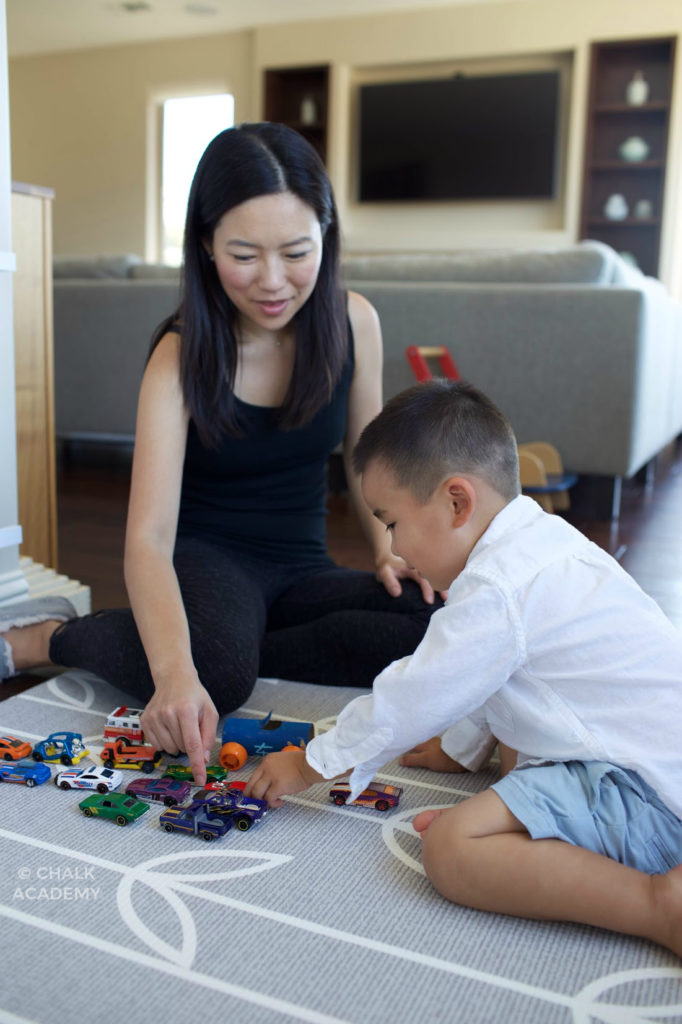
To help kids learn how to speak the minority language, hold the object that you’re talking about in Chinese. Then pass it to your child.
If your child can “feel” what you are saying, the tactile stimuli might help them remember words better than if you were to talk about it without a physical reference.
For instance, while talking to your child about a toy car (玩具车/玩具車/wánjù chē), pick it up while describing its appearance.
If you’re talking about the car wheels (轮胎 / 輪胎 / lúntāi), spin them at the same time and encourage your child to touch the details.
5. Talk about your child’s interests in Chinese
What are your children obsessed with? What are they holding in their hands right now? What are they looking at? These are perfect conversation starters in the minority language.
Children have a better chance of remembering Chinese words related to their interests.
For example, if my kids talk about their favorite animal shows in English, I reply with Chinese translations. For extra reinforcement, I repeat the animal names several times in subsequent sentences.
6. Speak Chinese while doing something completely new with your child
Can you think of something your child has never done before? This new experience is the perfect opportunity to teach kids how to talk in Chinese because no preceding memories exist in English.
When my children went boating for the first time, they easily learned Chinese words like 踏板船 (tàbǎn chuán / pedal boat) and 湖 (hú / lake). Since they had no prior experience with pedal boating in real life or books, they did not know what they were called in English.
This hands-on experience was a fresh chance for Chinese words to stick in their memory.

7. Talk to your pets in Chinese
Talk to everyone and do everything you can in Chinese! Eva Lou, quadrilingual mom and creator of Madeleine Editions, shares this brilliant and hilarious idea:
“I purposely talk to our dog in Chinese in front of my daughter! 😂 She loves it when I do that and imitates me.”
8. Sing with your child in Chinese
Chinese children’s songs are much more than good fun and melodies. According to Hong Zhang, a Chinese professor of music and founder of Song of Silk, music can help kids learn to speak Chinese.
“Singing increases sensitivity to tone. The four tones of spoken Chinese pose an intimidating obstacle to most foreign language learners. The ability to recognize and reproduce various pitches can be enhanced by musical training. A singer is said to sing more with the ear than with the mouth. In learning to sing, we learn to listen.”
9. Speak Chinese during imaginative play
Imaginative play can work wonders for children of all ages. For younger children, use their favorite open-ended toys to create relevant dialogue. During play, their toys can “practice” learning to talk in Chinese.
With older children and adolescents, brainstorm funny scenarios and act them out together! In this video, my daughter was four years old, acting out 狼和七只小山羊 (Láng hé qī zhī xiǎo shānyáng / Wolf and Seven Little Goats) with her toy animals.
10. Offer multiple-choice answers in Chinese
If your child is reluctant to speak Chinese, “multiple choice questions” can be a low-pressure way to invite a Chinese response. When my children first began to learn Chinese, I might ask them if they wanted “这个 (zhège / this)” or “那个 (nàgè / that)”.
As their Chinese improved, I offered specific, descriptive Chinese options. If we’re brainstorming what food to eat, I’ll ask, “Do you want to eat the 红苹果 (hóng píngguǒ / red apple) or the 黄香蕉 (huáng xiāngjiāo / yellow banana)?
Gradually, simple vocabulary will grow into full Chinese sentences and paragraphs.
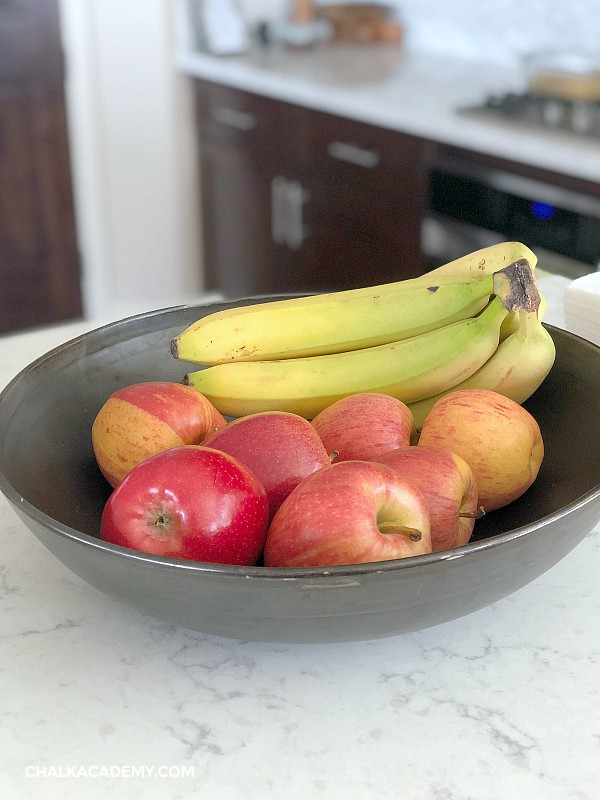
11. Use code-mixing as a transitional talking tool
If your child is fluent in another language, such as English, you might need to code-mix to scaffold in more Chinese vocabulary in the beginning. Their pre-existing knowledge is their foundation, as shown in the prior example about the banana and apple.
Over time, isolated Chinese words will become longer Chinese phrases and sentences. As your child learns to speak Chinese, code-mixing may become less necessary. It could also be a potential obstacle to fluency in the minority language.
When proficiency improves, use familiar Chinese words to describe what you are saying with the help of visual and physical cues. Consistency will help kids stay in the Chinese-speaking mindset.
12. Read Chinese books out loud
Daily story time is a powerful bonding opportunity for families. Reading aloud can help children speak Chinese by introducing a wide range of vocabulary, topics, and concepts.
In addition, stories are one of the best ways to help kids understand new concepts in Chinese, even without firsthand experience.
Here are the best Chinese books for kids organized by type and level.
13. Tell your child stories about your childhood in Chinese
What your life was like before your child was born? Stories about your life are interesting because they are about someone your child cares about. Take this opportunity to share your exclusive childhood story in Chinese!
My children always crack up when they hear stories about me and their dad during our dating days. They also often ask what hobbies we enjoyed decades ago when we were their age.
14. Talk about your day in Chinese
Whether you work outside or inside your home, sharing about your day with your children is an amazing way to connect in the Chinese language. When parents model how to share about their day, kids are more likely to reciprocate and divulge details in Chinese.
After work, I usually tell my children about my day first. They love to hear all the seemingly unimportant details, like where I sat, whether or not the room was chilly, and what I ate.
15. Speak Chinese while playing games
Get active with your child and play their favorite game while speaking Chinese.
Here are some games that we’ve turned into bilingual learning opportunities:
- Hide-and-seek
- Simon says
- Hopscotch
- Soccer
- Tic-tac-toe
For beginner speakers, a game like “Simon Says” is a fun way to learn verbs and body parts in Chinese. Children need to listen carefully to follow directions correctly.
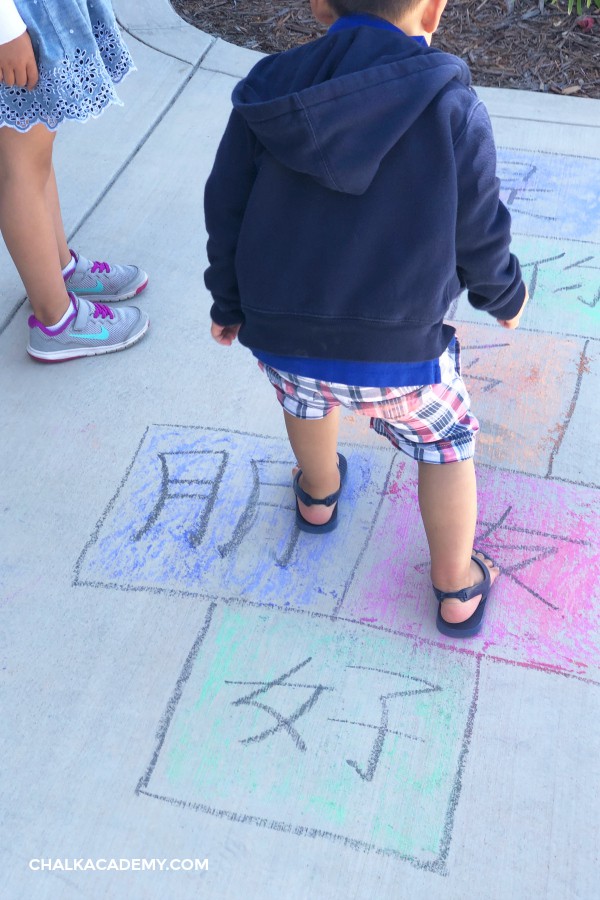
Conversational and fluent kids can play board games in Chinese. Have fun talking about your strategies and actions while speaking Chinese.
And if you’re traveling, try these fun car games for bilingual kids to use the minority language.
16. Speak Chinese during FaceTime with family
Our generation is lucky that technology can connect us with far-away relatives. Talk to your family and schedule a regular time to connect and bone while speaking Chinese. This is a meaningful way to get kids to speak Chinese.
Every week, we try to FaceTime with my Shanghainese-Canadian auntie. Although my children have rarely seen her due to distance, they feel they know her thanks to our Chinese FaceTime hangouts.
17. Let kids hear people talk in Chinese on TV
Screen time is a popular low-prep tool that can give kids passive exposure to native Chinese speakers.
Although watching videos is not enough to teach kids how to talk in Chinese, it can help normalize the minority language at home, especially for older children and teens.
Here are the best Chinese shows and movies for kids:
- Popular Disney Movies in Chinese
- Fun Chinese YouTube Channels with Real People
- Entertaining Chinese Netflix Shows for Kids
- Amazing Chinese Animal Shows and Documentaries
Videos that include Chinese people, such as 巧虎 (Qiaohu / Ciaohu), show our children that people like them exist and do interesting things!
18. Look for Chinese-speaking friends
Growing up, I went to school with no friends who spoke Chinese or any other language. Foreign languages were considered un-American. Unfortunately, this caused me to avoid speaking Chinese during my childhood.

Although my children live in a small, non-diverse town, I’m grateful they have a few mixed Chinese friends.
One mom found me through my Chalk Academy website and then connected me with her other Chinese friends!
Our daughters end up chatting in English, and we can’t force them to speak Chinese, but at least they can see and hear some of the parents talking in Chinese.
19. Show your child why speaking Chinese is important
Before learning Chinese with my children, I’ve been in numerous situations when Chinese tourists or foreign exchange students approached me for help. I know they hoped that my appearance meant that I could communicate with them. Since I could not speak Chinese, I could not help them.
Maybe you’ve been in a similar situation where you couldn’t connect with someone who needed you, such as a relative. These are important examples that we should share with our children.
20. Travel if you can
Of course, traveling is probably the most effective way to get kids to speak Chinese. If you can, plan a trip to China, Hong Kong, Taiwan, Singapore, Malaysia, and other areas with native Chinese speakers.
If you can’t travel abroad, big cities like San Francisco, Los Angeles, and New York City have large Chinese-speaking communities.
However, traveling is not affordable or practical for many families. We need to work with our everyday resources. The aforementioned suggestions can teach kids how to talk in Chinese at home.
21. Give yourself grace
Like many parents, when I’m tired, I forget how to speak Chinese, and my native language, English, flows out. I hope it’s reassuring to know this is common for most families, regardless of fluency.
Rona Luo, bilingual mother and acupuncturist, offers sound advice from her experience:

“I’ve realized that when I notice a lot of English coming out of my mouth, it’s a sign that I’m stressed or tired and need to do more self-care rather than beat myself up and tell myself to try harder to speak Chinese consistently.
The less I push myself and the more I pay attention to my own needs, the more I can carry on speaking my non-dominant language!”
Which strategies help your kids talk in Chinese?
If you’ve made any strides, how did you get your kids to speak Chinese? Please share your experience and tips in the comments.
If you’re stuck, I hope these ideas can help your family! Share this post with friends, caregivers, and teachers to spread bilingual encouragement.
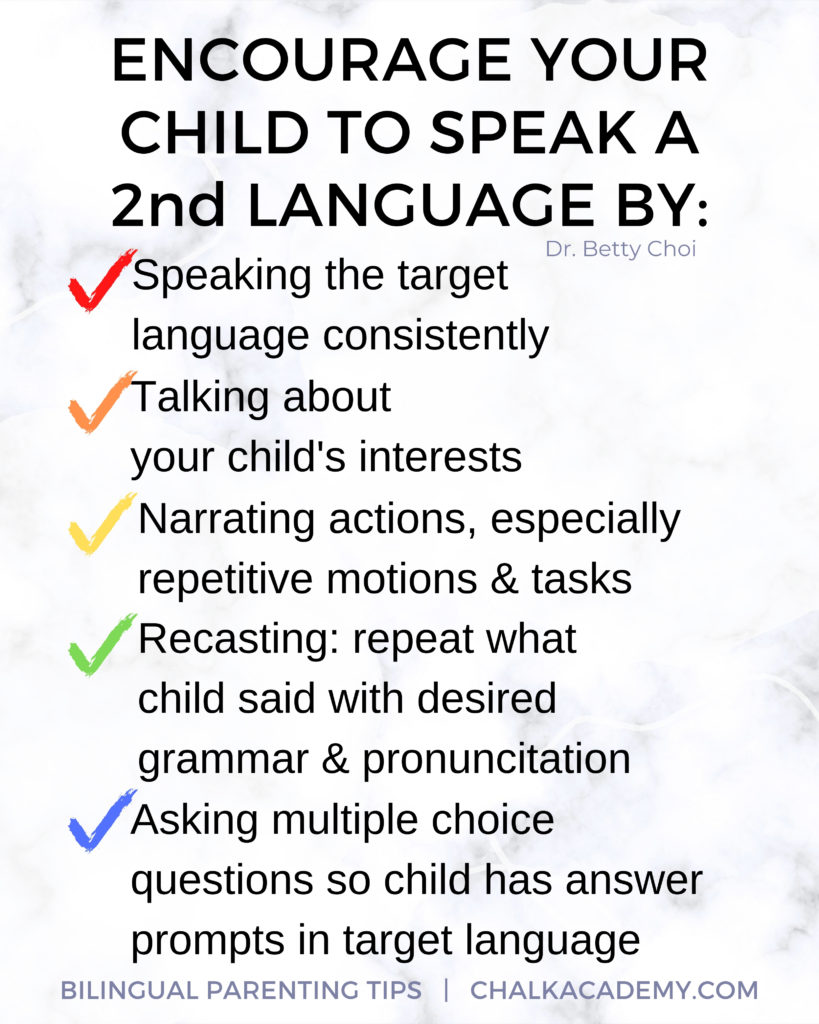

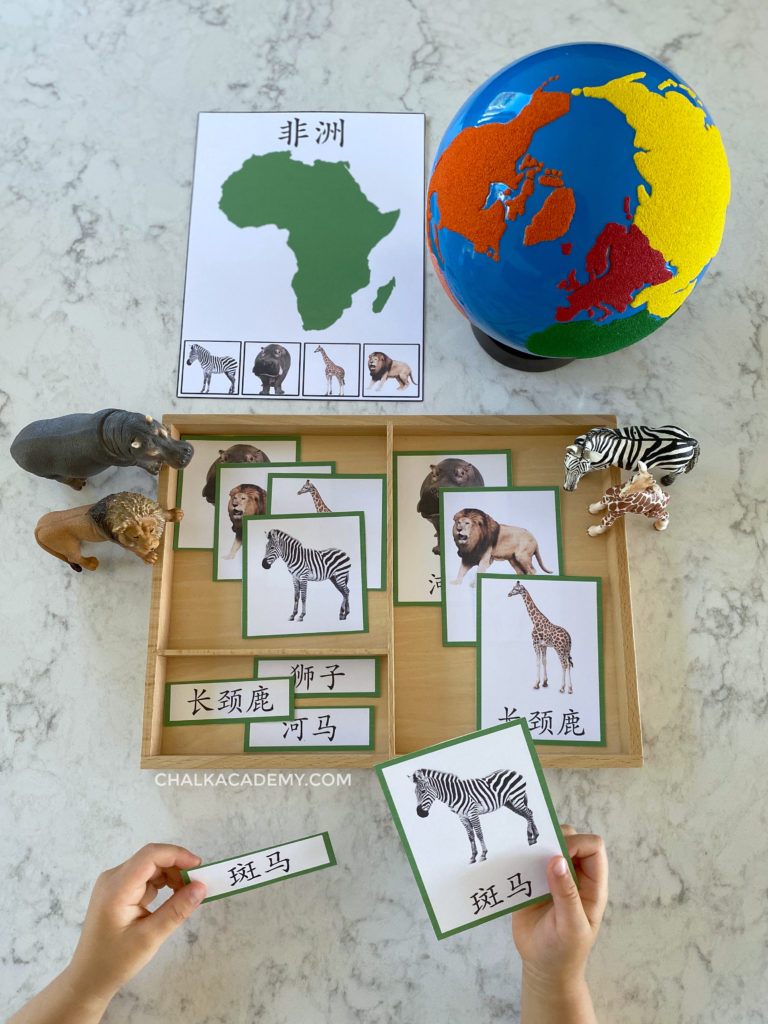
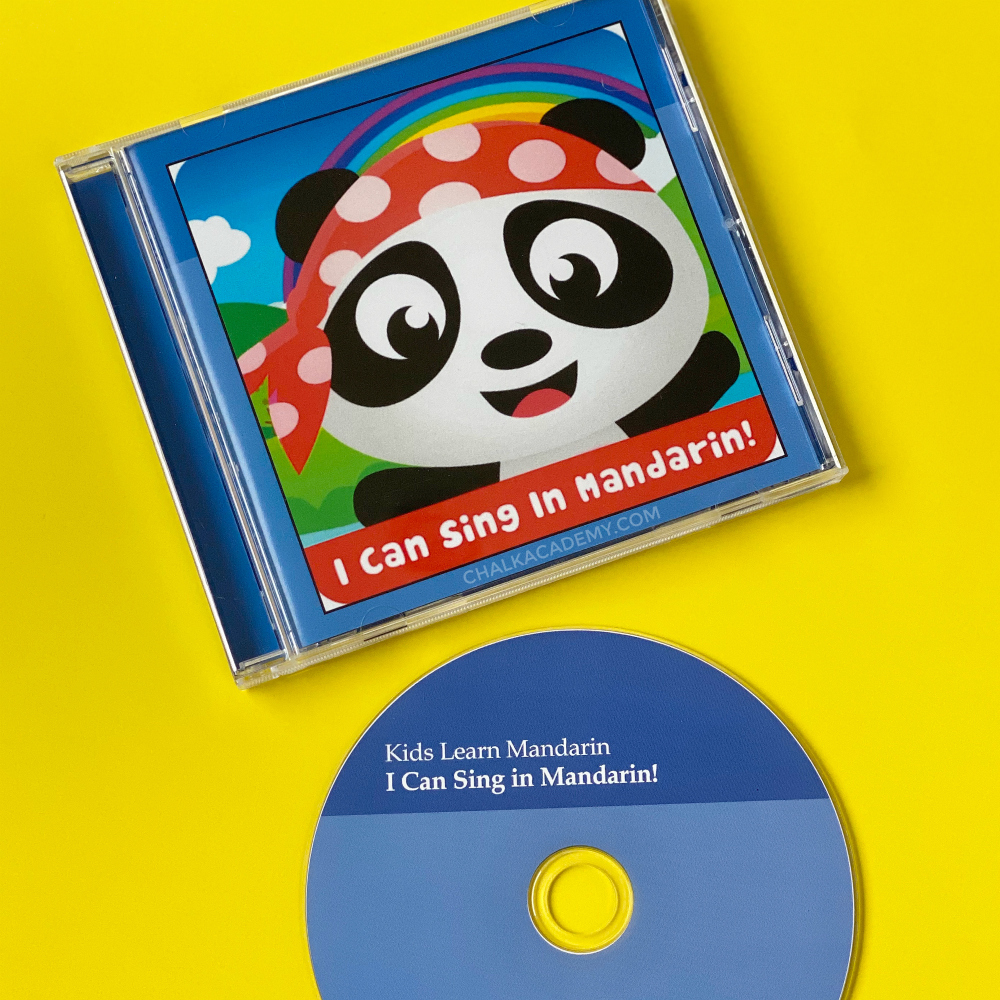
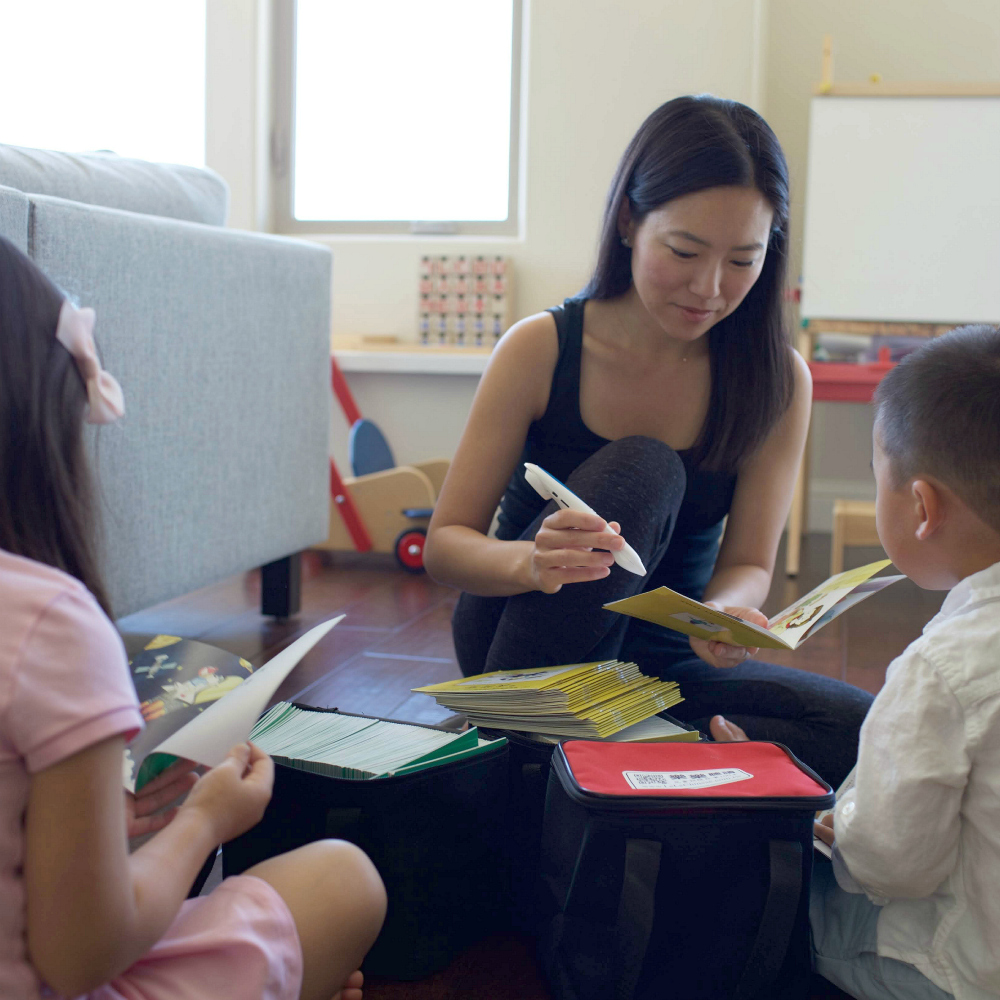
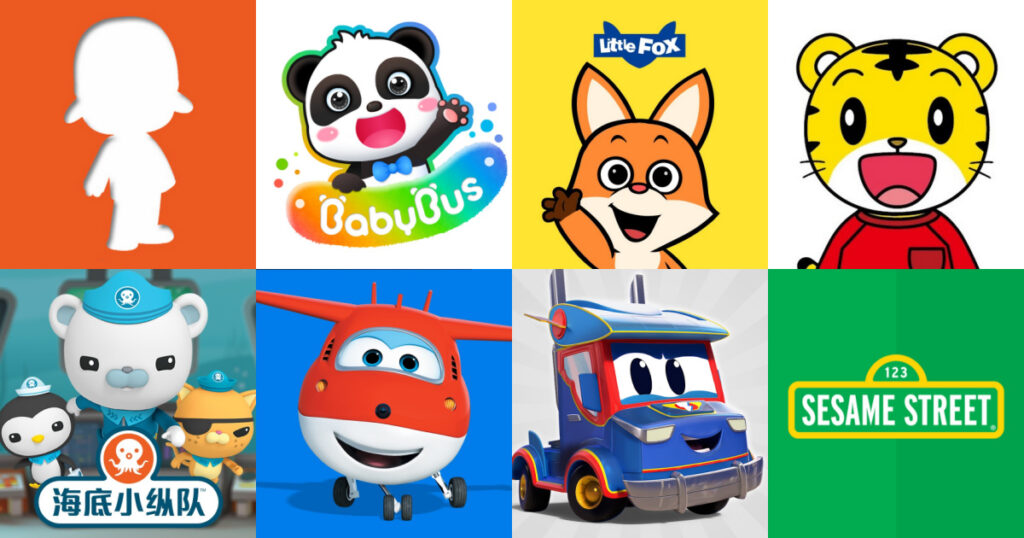

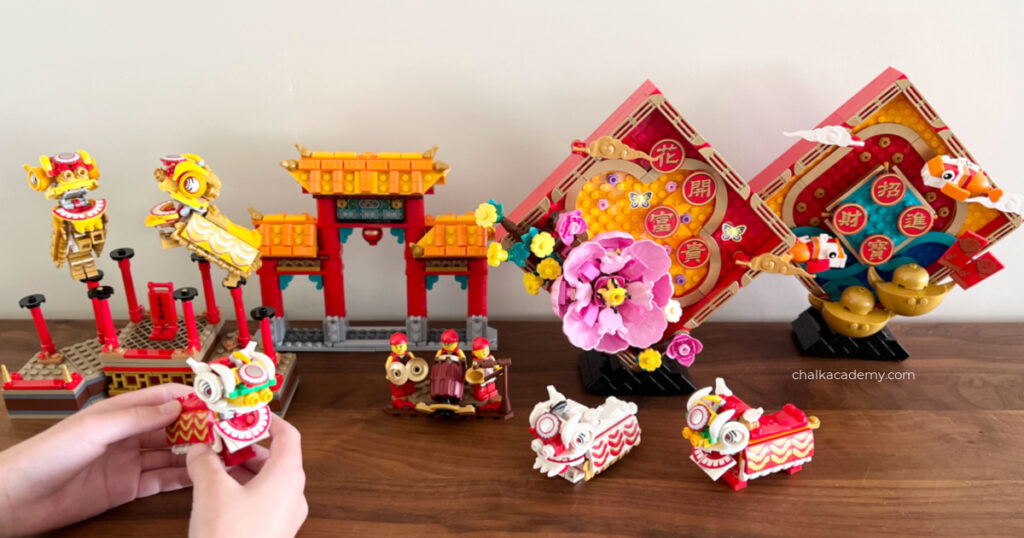
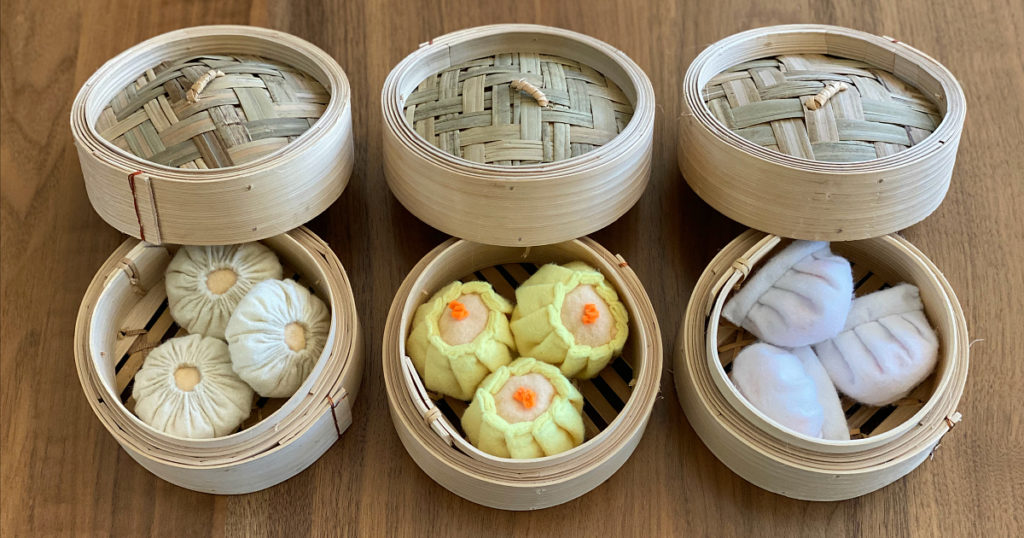
What a Great piece of guidance to those parents who choose to pick it up.
Am an African in Kenya Kilifi
County learning Chinese by myself this is my 6th month using a smart phone. My chilren all grown up.
I’ve two grand sons 5 & 6 yrs.
My 1st languge is Gikuyu, 2nd is English 3rd Kiswahili & 4th others and now Chinese included.
Where do I start?
Hi Betty,
A heat-felt thank you for all the wonderful and practical advice that you’ve given in this article on how to encourage our children on speaking Chinese!
This is an article that I will keep coming back to. I’ve been feeling defeated and lost on the Chinese-coaching/learning journey with my four and half years old boy. Your blog and articles have surely shined the lights on what I can do.
I have now set up a time at 8 pm every night to reflect on your 21 comphresive tips – what is the ONE tips that I have practised with my boy today? What can I do better/keep doing tomorrow? I will be in touch for more updates!
Thank you so much for your inspiration. Look forward to learning more with you.
Regina
Thank you for sharing your journey to teach your kids Chinese. My older boy, who turned 3 two months ago, has stopped speaking Chinese 2 months ago…after we got a new English speaking nanny. Previously, Chinese was his dominate language until he was 34 months old…once our new and wonderful nanny joined us, he switched to English within a month and now refuses to speak in Chinese…even when I know he knows how to say it. I understand why he’s leaning into English; his English has just skyrocketed…complex sentences, gaining so many vocab every day…while his Chinese likely stayed at fairly limited capacity (though he fully understands everything). I have told him that he needs to try to speak to me in Chinese if he wants to communicate with me…but he just rather not say anything at all…but says he misses mama before bedtime every night. It’s very frustrating and I feel terrible because he was finally at a point he could communicate so much…like a little adult. Besides getting better at being more consistent in speaking to him in Chinese, any other tips you found helpful to get the little ones to try again?
Thank you Betty for sharing your precious experience of raising your kids with a language that touches your heart. You are very creative and very successful raising multilingual kids. I appreciate at most your generosity to share the wealth of resources you found with people you don’t know. I am a Chinese teacher myself and a native speaker of course. I did not raise my two kids in the way you did and of course they are both fluent in speaking and still learn to read and to write now in their teens years. I have learned a lot from you. Thanks again for sharing.
Hi Esther! Thank you for taking the time to write and share about your family. It’s encouraging to hear that your children are fluent and continue to learn! I hope my kids will still love learning Chinese at that age!